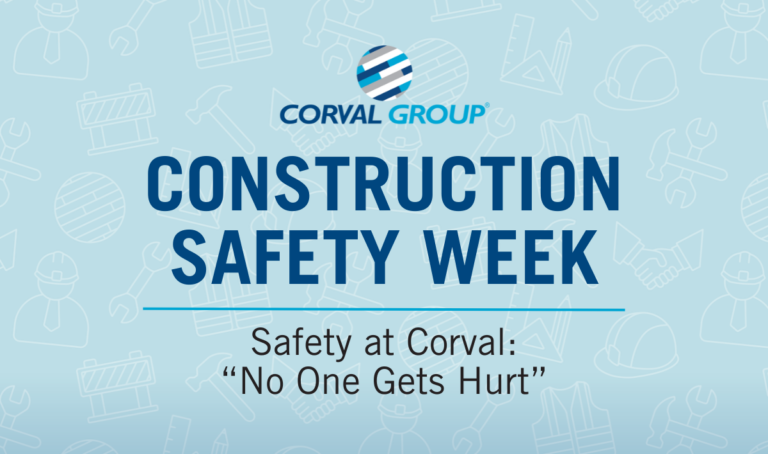To end Construction Safety Week, we want to share some history and
insight into safety at Corval Group and show why it continues to be so
important to us.
THE JOURNEY BEGINS
Speaking with our CEO, Paul Jordan, he gave us an idea of how Corval’s safety culture has changed over time. Paul has been with Corval since 1987 working his summers at our Tools & Equipment facility. He has seen the company through many ups and downs, including in the world of safety.
“We had a Safety Director here in the late ‘80s, early ‘90s, but it was a different role than what we have today,” said Jordan. “We grew up being taught that we want all of our people to go home safe to their families at the end of the day, but didn’t have much structure around how we did that. We thought we had a strong safety culture, but we were only at the beginning of a long journey.”
In the early 2000s, Corval had a safety-related incident unlike anything we’d seen before. This moment was a wake-up call and the catalyst to change our safety culture for the better. We brought in an industry professional who helped us change the way we thought about safety as a company.
“He told me that, ‘If you care about getting your teams home safely at the end of every day, safety has to become an obsession,’” said Jordan. “We stepped up as leaders, and as a company, to take on this challenge. We underwent a hard transition. But, we emerged on the other side regretting nothing we did to change our safety culture.”
“Safety became a massive passion for all of us owners, and the passion is just as strong today,” Jordan continued. “John Rutledge and his group further developed our safety programs. They have been amazing and a total game-changer for us. Safety has had a great positive financial impact on us as well. We have ‘won’ many projects in the past fifteen years because of our safety record. Contractors and clients say they’re happy to work with us because they know we put safety first, and our record proves it.”
Jordan stated, “Safety truly is our number one Core Value. I always tell people that I would rather shut our doors than have anybody ever get seriously injured on a project again. I can confidently say that our safety record and culture is world-class.”
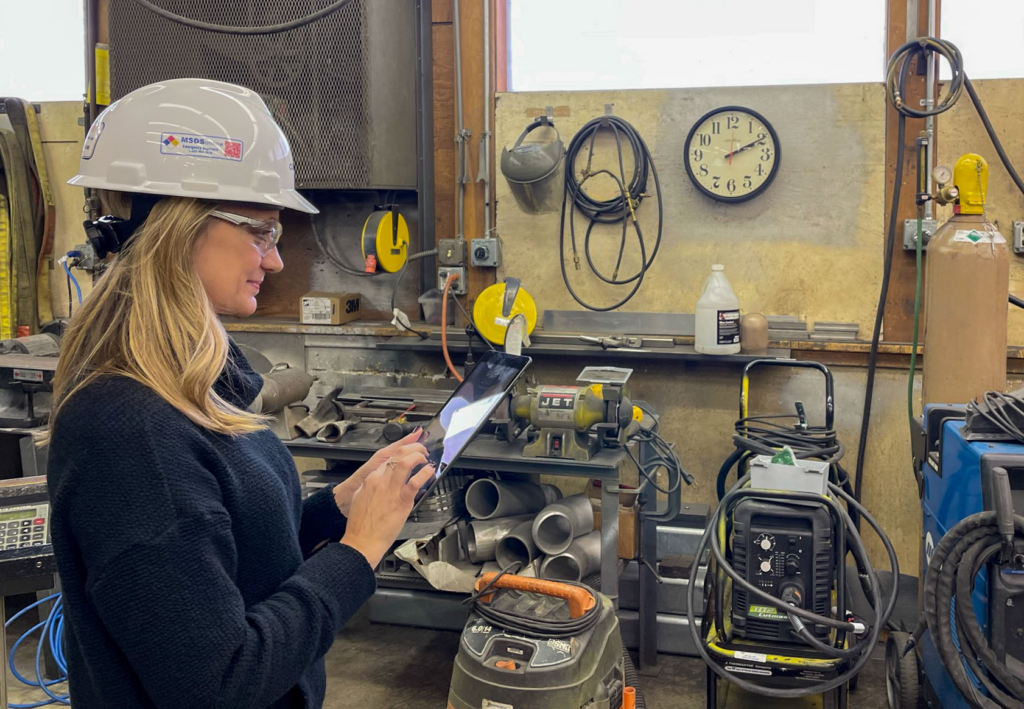
CORVAL’S SAFETY TEAM TODAY
Based out of our St. Paul office, Corval’s Safety team works hard every day to support safety efforts for all of Corval.
As the Director of Safety, John Rutledge leads and constantly works to strengthen our Safety Department. “Since starting with Corval about 14 years ago, I’ve helped to grow and develop multiple safety programs for the company,” Rutledge said. “These include taking our SPOT program to a new level, building up our Just-In-Time (JIT) Training Modules, and many other in-house safety training programs. I want to continue educating our Project Managers, Foremen, Service Technicians, and everyone else at Corval to ensure their jobs are as safe as possible. I always hear from customers and partners about how impressed they are with Corval’s safety protocols and programs, and I’m grateful to have played a part in developing a positive safety culture here.”
Steve Bowen is our Safety Manager and continuously works with Corval’s Safety team to keep our team members in and out of the field safe. To continue to grow and develop safety efforts at Corval, Bowen leads Corval’s Safety Committee. This group is made up of action-oriented individuals from both the office and the field who strive to find and fix potential safety issues at all levels of the company. “When companies get busy, sometimes things fall through the cracks,” said Bowen. “What we’re doing [in the Committee] is making sure that doesn’t happen with all things related to safety.”
Sitting in on the meeting, the Committee discussed a variety of topics. They ranged from identifying gaps in training to reporting near misses to handling job-site-specific hazards. Each member actively contributed, voicing concerns or praise about how we handle safety issues. Overall, the Committee continues to be an important force for positive change for safety in the office and field alike.
Tammy Eastman is our Safety Coordinator and has been with Corval for just under 13 years. Eastman gave us a run-down of one of Corval’s biggest safety programs, one that she fully supports and encourages participation, saying, “Corval has a positive reinforcement program, based on the concept of Situation, Behavior & Outcome (SBOs), that we refer to as the SPOT Program. The SPOT-writing process reinforces the desired behavior and perpetuates employee performance.” Corval employees write more than 1,500 SPOTs per month, reinforcing those positive actions that happen on and around job sites and in the office.
John Ross Jr. has worked for Corval since 1997. He is currently involved in many areas of Corval, including the Safety Department. “I regularly get phone calls from people with questions about how to perform certain types of work and all the safety aspects that go with the work,” said Ross. “I like it when I can help others, and maybe teach them something they didn’t know. Steve [Bowen] and I talk regularly about things we need to focus on, and then find ways to teach that information to our crews on project sites.”
“Safety is important because an injury can be life-altering, and it only takes a split-second for an incident to happen,” Ross added. “We all have people who depend on us, so let’s make sure we are there for them.”
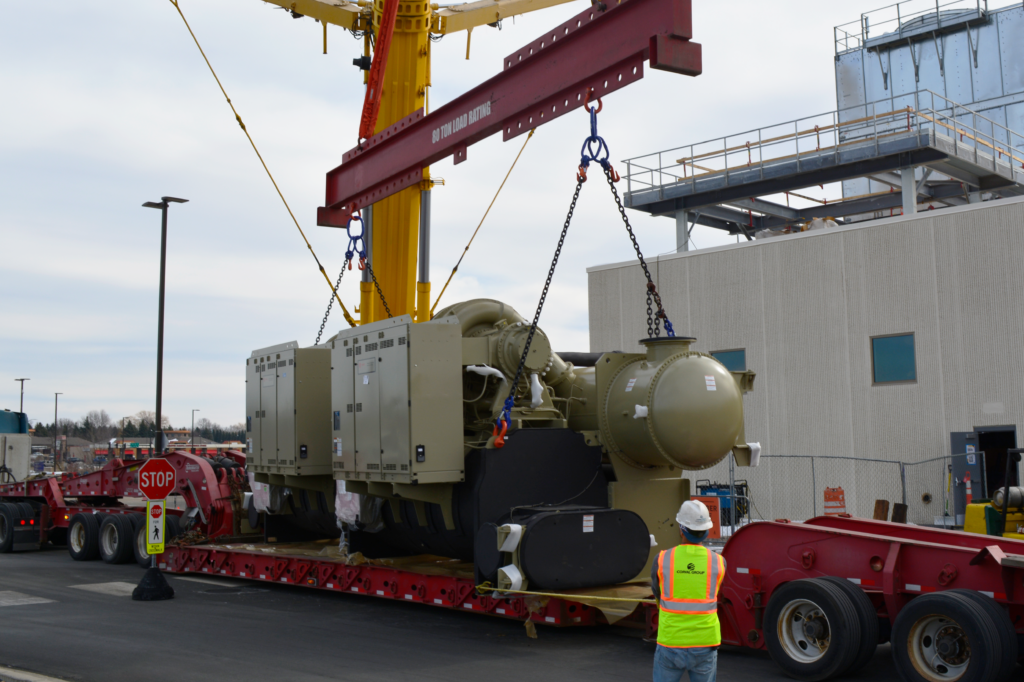
SAFETY THROUGHOUT CORVAL
Safety discussions don’t just happen in the Safety Department– they take place all around Corval. Safety is important to us, not just because we’re a construction company. It’s important because we want everyone, whether they sit at a desk or work in the field, to go home safely.
Our Project Managers help bridge the gap between Corval offices and our job sites. Tony Harrington is one of our most diligent Project Managers when it comes to recording safety-related documentation. “When visiting a job site, I take the time to perform Site Safety Audits (SSAs),” said Harrington. “While filling out SSAs, if I come across anything on the job site that looks unsafe, I inform my crew so proper actions and corrections can be made. I also ensure that all my crew members know to use their Stop Work Authority (SWA). Anyone working on Corval’s projects can raise red flags and use their SWA to stop work if they see that something is unsafe.”
Ben Walz is another Project Manager. He brought up the importance of safety planning before a project starts. “Safety is a big part of our pre-planning process,” said Walz. “One of the biggest ways they help is when we develop a Site-Specific Safety Plan (SSSP) for the project. Our SSSPs ensure we have a plan in place to tackle risks before anybody is actually out on site. Say you’re working in an old school– well, if that school was built in the 1970s, it might have asbestos. Making sure your crew is aware of hazards like that and any other mitigations needed is key; having those details in the SSSP means they know what they’re getting into before they start work on the site. We also have follow-up walkthroughs throughout the project with Safety in case we need to make changes to the plan due to anything that comes up during construction.”
Corval relies on our Site Superintendents and Foremen to ensure safety is at the forefront of everyone’s minds in the field.
Trent Hack serves as a Site Superintendent on Corval projects. “There are obvious hazards when working with large equipment that most tradespeople can identify easily,” Hack said. “I feel my role in safety is to identify not just the obvious hazards, but the smaller ones that may get overlooked,” he added. “I communicate to everyone involved what we need to watch out for and how to mitigate potential hazards. Making sure everyone can go home at the end of the day in the same condition they showed up in takes priority over everything else on the project.”
In our St. Paul Sheet Metal Fabrication shop, Dominic Andretta is the shop’s Foreman. He said, “Every day, we start with stretching to get ready for the day.” And while we’re doing that stretching, it’s an open forum to discuss safety and bring up any concerns– it’s not just job safety, it can go into someone’s personal life too, which also has a lot to do with safety, making sure you’ve got your head on straight before you’re dealing with large equipment.”
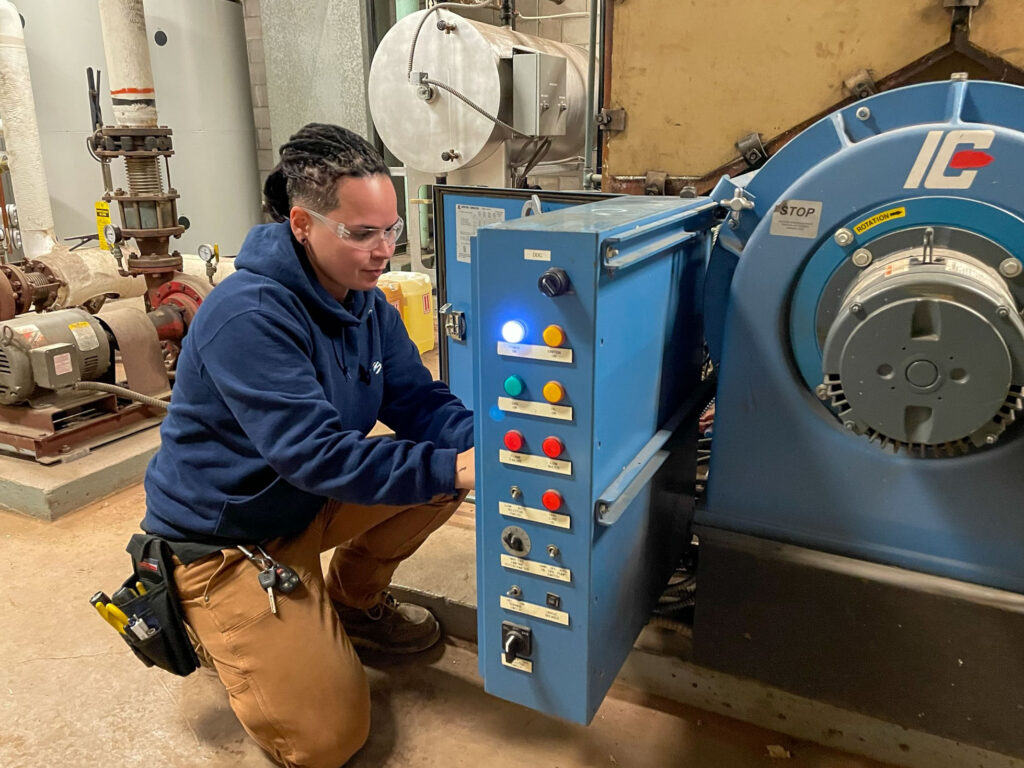
Corval has a team of skilled Service Technicians, many of whom travel between job sites to help different customers. Because many of our technicians work by themselves, our service team is skilled in adjusting their practices at the different job sites they visit. Three of our Technicians, Derek Orner, George Marthaler, and Natalie Bruski-Pena-Marrero, shared some of their thoughts on safety with us.
When discussing safety on the job, Derek shared praise for Corval’s safety programs and how they make his job easier. “It streamlines education and practicing safety by sending monthly APBs (Accident Prevention Bulletins) and integrating on-the-job safety through the SPOT program. These two resources combined keep everyone’s mind focused on what really matters– everyone making it home safe!”
George is one of a handful of Corval technicians who work on the same job site almost every day. “I’m working on my own a lot,” George said. “The customer I work with has their own safety program, so I make sure I’m following their safety protocols while upholding Corval’s at the same time. They both have ‘Lock-Out Tag-Out’ programs, which is something I use all the time in my work.”
Service Technician Natalie told us about how she stays safe on the job. “I always make sure I’m wearing the right personal protective equipment. It’s also important to conduct pre-job safety checks to identify potential hazards, communicate about said hazards, and stay up to date with training and certification to maintain my trade knowledge.”
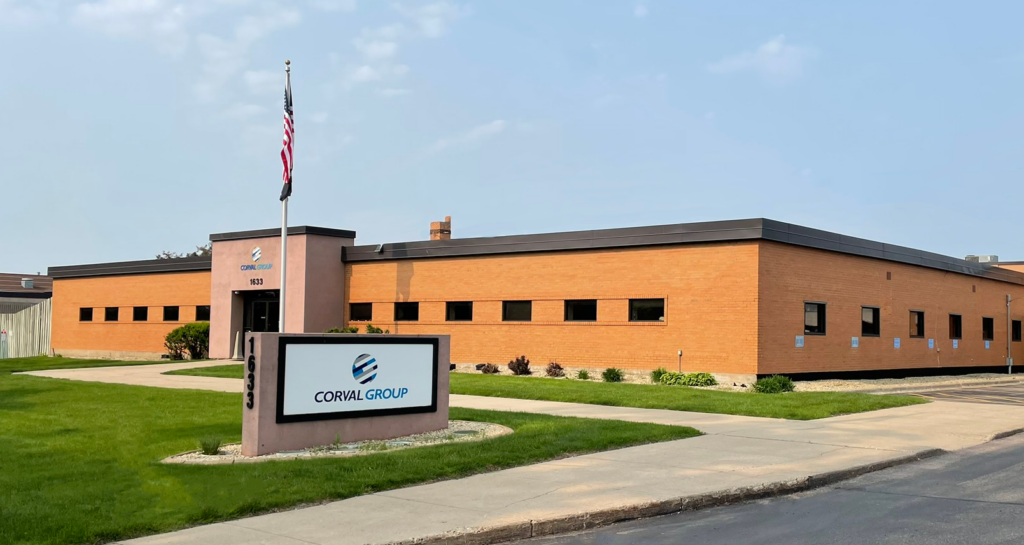
"NO ONE GETS HURT"
At the end of the day, Safety is, and will always be, our #1 Core Value. Corval receives many safety awards every year. We see repeated recognitions from groups like the Association of General Contractors of Minnesota and North Dakota, LECET, SMACNA, and the Minnesota Safety Council. We’re proud of internal achievements too. We reached 11 Million Hours of Work with No Lost Time and logged 1.6 Million Hours Recordable-Free.
Safety is relevant in all areas of Corval, whether an employee is in the office planning a project or performing work on the field. We’re very proud of the safety culture we’ve built in our company, and our success is due to Corval employees’ commitment to implementing safety every day. We work hard to meet the high standards we’ve set, holding both ourselves and each other accountable to achieve the best outcome together.
